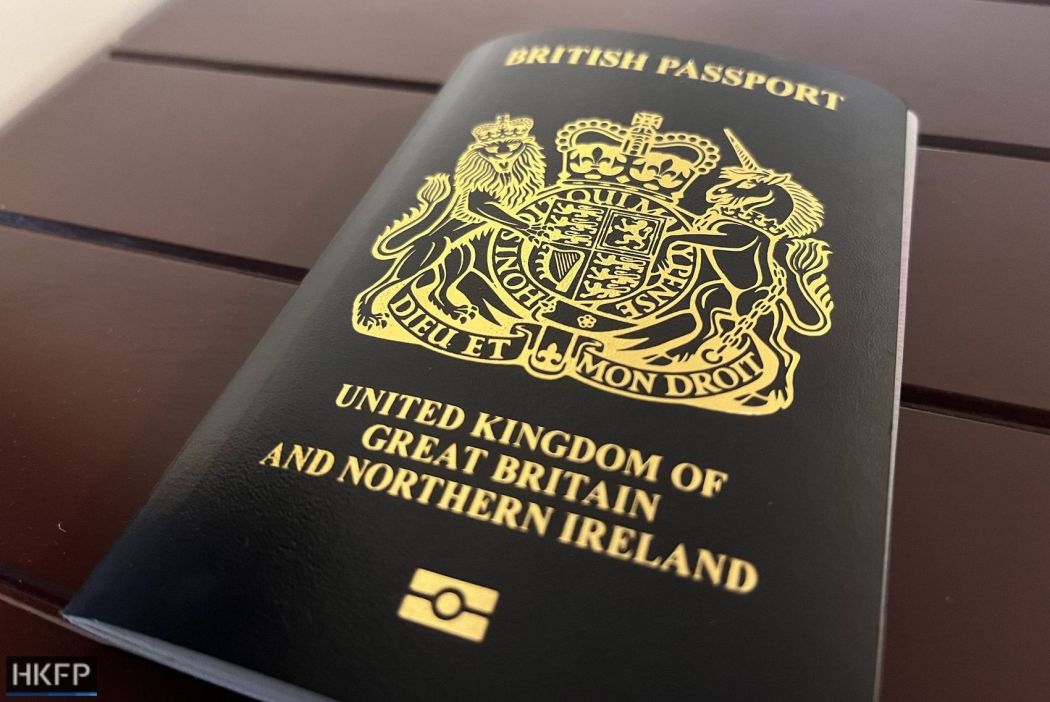Some 144,500 people have left Hong Kong and moved to the UK in the two years since London launched an emigration scheme for holders of British National (Overseas) passports after Beijing enacted the national security law in the city.

The immigration policy, which launched on January 31, 2021, allows BNO passport holders and their dependents to live and work in the UK for up to five years, thus providing them a pathway towards permanent residency and citizenship.
The scheme was expanded last November to cover adults born after July 1, 1997 – when the UK handed over its former colony to China – and with at least one parent who is a BNO passport holder. They can apply to settle in the UK on their own.
In a video published on the scheme’s two-year anniversary, the UK Home Office Minister for Immigration Robert Jenrick said the policy allowed Hongkongers to “enjoy all the freedoms that we enjoy here.”
“We continue to take action to uphold our moral and historic commitment to the people of Hong Kong,” the British minister said, adding that he felt “particularly proud” that Hongkongers have been making “incredible contributions” to the local community and UK’s economy.
Jenrick said he heard stories of and saw BNO visa holders working in the public health sector, education, and other trades as well as volunteering to help fellow immigrants from Ukraine and Afghanistan.
Official figures published by the UK Home Office showed a gradual decrease in the number of Hongkongers applying for the BNO emigration path since its peak at over 25,000 in the second quarter of 2021. Between July and September last year, the British authorities received 9,420 new applications.
Meanwhile, the UK’s move has drawn continuous criticism from the authorities in Hong Kong and mainland China, with both saying they no longer recognise the BNO passport as a legitimate identity or travel document.
Beijing’s office in Hong Kong called the BNO policy an “emigration trap,” saying the former colonial power was stirring up political issues to reap economic benefits and Hongkongers would find themselves seen as “second-class citizens” in the UK.
In June 2020, Beijing inserted national security legislation directly into Hong Kong’s mini-constitution – bypassing the local legislature – following a year of pro-democracy protests and unrest. It criminalised subversion, secession, collusion with foreign forces and terrorist acts, which were broadly defined to include disruption to transport and other infrastructure. The move gave police sweeping new powers, alarming democrats, civil society groups and trade partners, as such laws have been used broadly to silence and punish dissidents in China. However, the authorities say it has restored stability and peace to the city.
Support HKFP | Policies & Ethics | Error/typo? | Contact Us | Newsletter | Transparency & Annual Report | Apps
Help safeguard press freedom & keep HKFP free for all readers by supporting our team
























